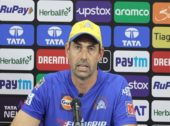Move FM movie review

mid90s
Overview
Metadata
Details
Images
Actors
Starring: —Actor Jonah Hill’s feature writing/directing debut mid90s does one thing very well: It makes good on its title, evoking with anthropological detail the very specific world of skater culture in the mid-1990s. Hill was part of that insular world as a Southern California teenager, and he clearly knows it inside and out. He knows what goes into a social order constructed and maintained by adolescent male outsiders: the vulgar slang, the sexism and homophobia, the rituals of one-upmanship and daring. At the same time, though, he sees how the world of skateboarding’”a subculture that was viewed, at best, with a wary eye by social guardians’”could be an escape for those without any other place to be, a world in which racial and class distinctions could be erased (or at least temporarily ignored) by the shared love of skating.
Unfortunately, that is really the only thing the film does well, as its careful and nuanced depiction of skater culture is an overdetermined backdrop for an exceedingly slight coming-of-age tale that is heavy on familiar clichés and light on real insight into its characters. Hill misses what the Italian neorealists nailed in the late 1940s when they used documentary-like reality to evoke a shared sense of struggling human dignity. The best neorealist films took the specific and made it universal. Hill gets the specifics, but he misses the broader sense of shared humanity because the characters are so easily reducible to stock types, as are their various dilemmas.
The protagonist is a 13-year-old named Stevie (Sunny Suljic) who lives with his single mom, Dabney (Katherine Waterston), a former wild child who is now trying to live on the straight and narrow, and his abusive 18-year-old brother Ian (Lucas Hedges), a glowering loser whose only real accomplishment is appropriating black hip-hop culture. Ian has no use for his little brother, who clearly looks up to him, which leaves Stevie with role models. This largely explains why Stevie, who seems to be perpetually seeking an identity, eventually falls in with a group of amiably defiant teenager skaters who hang out at a local skate shop. The leaders of the group are Ray (Na-kel Smith), a genuinely talented teen who aspires to the world of professional skating, and Fuckshit (Olan Prenatt), his much wilder and less focused best friend. There are two secondary members of the group: Ruben (Gio Galicia), a younger teen who talks big, but has little to back it up with, and Fourth Grade (Ryder McLaughlin), a genial dim bulb with bad skin, an poverty-stricken home life, and a videocamera that is constantly aimed at something.
The dynamics within the group provides the film with some of its richest moments. All of the characters are played by real-life skaters who bring their own sense of authenticity; they aren’t great actors, but they have a loose naturalism and lack of self-consciousness that makes them feel imminently real. Their conversations, which often unfold in the skate shop while they lounge around watching skate videos, or in various locations around suburban Los Angeles that they (illegally) turn into skating havens, feel real and true and honest. They sound like kids figuring things out and trying to be bigger than they actually are. Ray aspires to some kind of maturity and professionalism, while Fuckshit, as his name suggests, doesn’t care about much of anything beyond having a good time, which eventually isolates him from Ray; his self-centered and potentially self-destructive juvenilia threatens Ray’s grander ambitions. Tensions also develop between Ruben and Stevie, as Ruben, formally the bottom member of the group, becomes jealous of Stevie’s fast ascent within it.
But, there is virtually nothing new here, and Hill, as both writer and director, doesn’t treat the overly familiar material in a way that makes it feel special or insightful; instead, the story and characters often feel too much like a paper-thin excuse for Hill to revisit the scene of his own adolescence and enshrine it on the screen. Ian, despite a good performance by Lucas Hedges, remains resolutely one-note, and his dynamic with Stevie is static as a result. Stevie’s mother is too much of a peripheral character (Hill doesn’t seem to know how to manage the parent-child drama beyond large theatrics), and her actions often make no sense, such as her third act acceptance of Stevie’s skater friends at the very moment when she should be absolutely livid with them. Stevie makes for a potentially interesting central character, and Suljic, who looks much younger than he is, plays him well. But, he all too often feels like a cypher, a simplistic evocation of adolescent longing for acceptance mixed with unexplained details like a penchant for physical self-harm that would seem to point to some intense past trauma that is never named.
Hill and cinematographer Christopher Blauvelt, who has previously worked with Kelly Reichardt (Meek’s Cutoff) and Sofia Coppola (The Bling Ring), strive to give the film a rough immediacy and sense of being timeworn and era-locked (it was shot on grainy 16mm film in the squarish 1.33:1 aspect ratio). There is a general nod toward a rough, handheld sense of visual realism, but they also can’t help but throw in a few elaborate crane shots and quirky bits of montage. mid90s is a mash-up of styles that don’t quite mesh, and Hill anchors too much of the film’s character and drama in his detailed sense of time and place (including a soundtrack of Clinton-era hip-hop, punk, and pop), which turns its best quality into an overburdened crutch.
Copyright © 2018 James Kendrick
Thoughts? E-mail James Kendrick
All images copyright © A24
move fm australian News
Australia and X’s Elon Musk clash over church stabbing video
sydney – Australia’s attempts to ban a graphic video...
Read More“We are just trying to….”: CSK coach Fleming after loss to LSG
Chennai (Tamil Nadu) [India], April 24 (ANI): Following his...
Read MoreCSK’s Ruturaj Gaikwad smashes second century in losing cause, joins unwanted company
Chennai (Tamil Nadu) [India], April 24 (ANI): Chennai Super...
Read MoreMarcus Stoinis registers highest individual score during run-chase in IPL history
Chennai (Tamil Nadu) [India], April 24 (ANI): Australia and...
Read More





